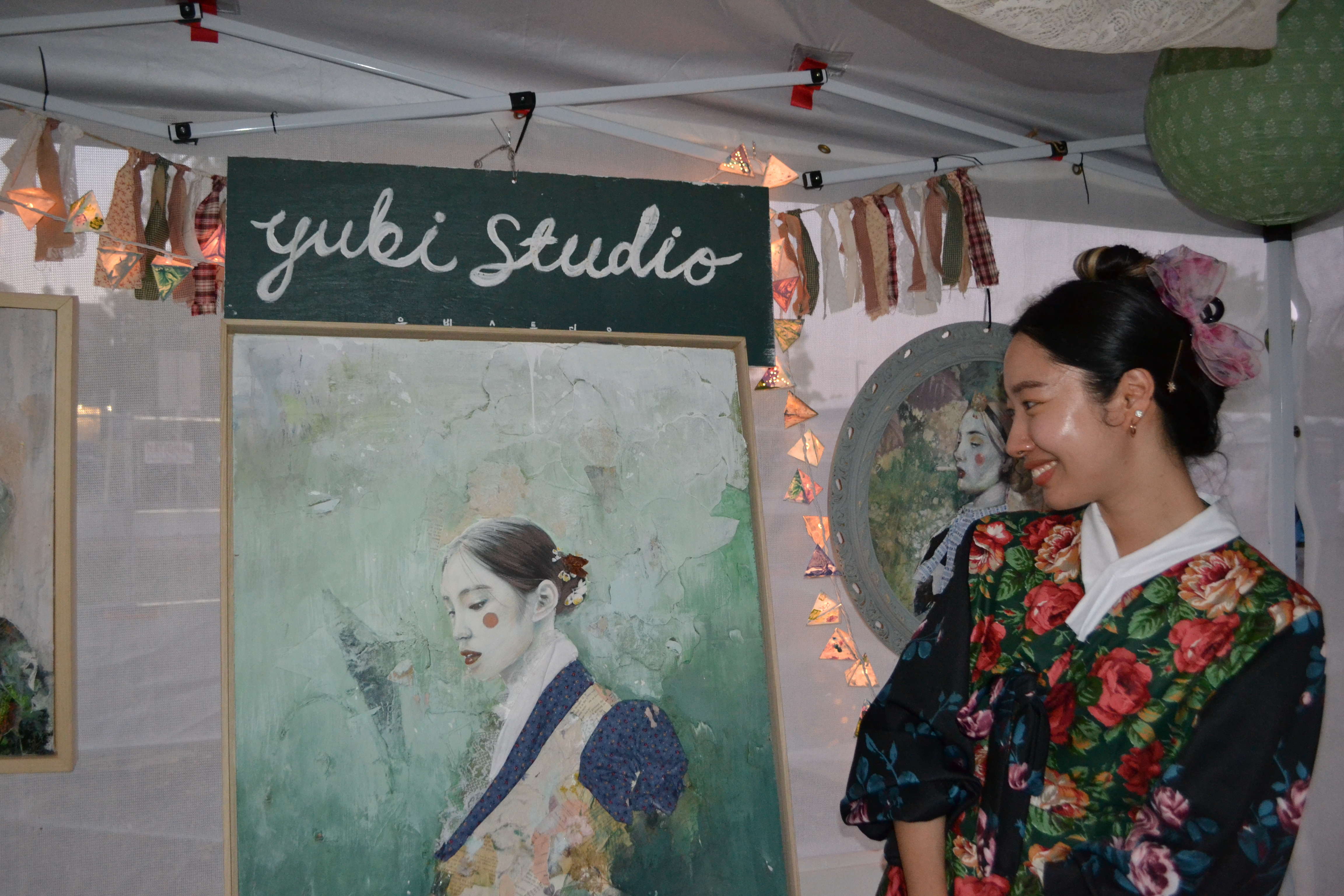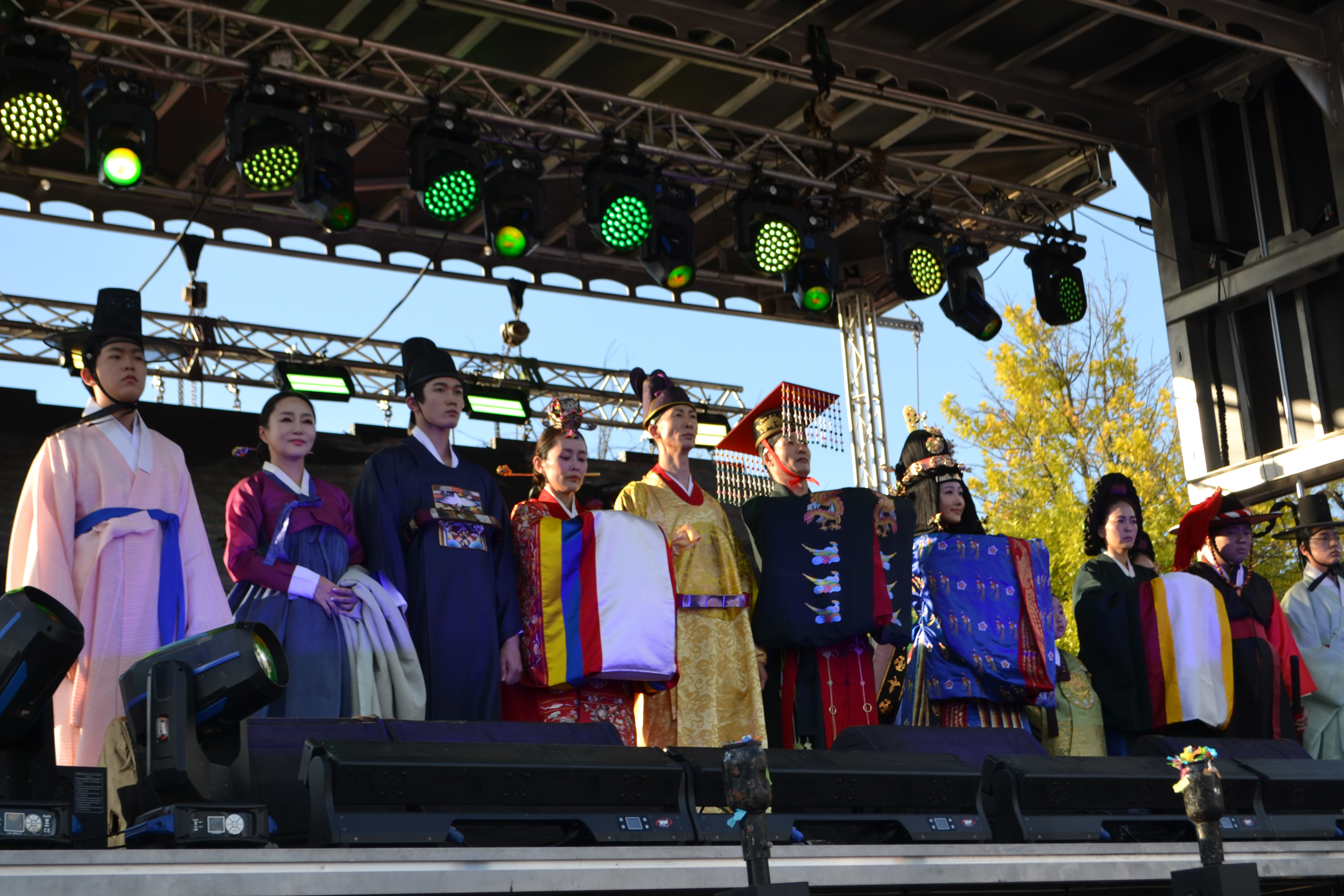The 2024 Korean Festival in Atlanta aimed to strengthen camaraderie through sharing Korean culture with the local American community, while also preserving Korean identity. Nestled in the Atlanta suburb of Lawrenceville, Georgia, the Korean Festival hosted thousands of local Georgians over October 5-6.
The two-day program included traditional dance performances, Samul Nori drum showcases, and a traditional Hanbok dress show. K-Pop performances by local cover groups and concerts from K-Pop artists Be:Max and Beom Han drew especially impressive crowds.
Attendees were able to experience several hands-on cultural activities. Adults and children alike were drawn to the calligraphy demonstrations, Taekwondo practice, and the traditional Jegichagi kick game. The festival also served as foodie heaven, as numerous local restaurants and food vendors offered delicious Korean street foods like kimbap rice rolls and spicy tteok-bokki rice cakes.
Hosted by the Korean Festival Foundation, the Korean Festival’s mission is fourfold. Cultural preservation and sharing, identity maintenance, community strengthening, and economic benefits are the principles that drive the festival’s programming.
The festival was held regularly for over ten years before the COVID-19 pandemic interrupted its activities. The festival resumed in 2022 and has occurred annually since. Its sponsors include the Consulate General of the Republic of Korea in Atlanta, the Korean American Chamber of Commerce, and Explore Gwinnett.
Korean American Influence
Lawrenceville is in Gwinnett County, Georgia, which has a Sister Partnership with the Gangnam district of Seoul. Gwinnett has the highest Korean population in Georgia, with a 2020 census revealing that 47% of Koreans living in the state reside in Gwinnett County.
With a population of nearly 73,000 Korean Americans across the state, the Korean community is a driving force within Georgia’s society and economy.
Demonstrating the Korean Festival’s prevalence in the local community, many political candidates capitalized on the gathering to reach voters. For example, Michelle Kang is a first-generation Korean American who ran to be the State Representative for the local House District 99. Kang ceded the race to incumbent Matt Reeves on November 5, 2024, with a margin of 627 votes.
“It doesn't matter if you are Korean or African American, black or white. There are all kinds of people here, I think that's the connection. We're sharing the same space,” Kang touched on the community impact of the Korean Festival during an interview with East-West Center Young Professional Marissa Harrold.
“I'm very proud of being a Korean American and an Asian American, for our economic contribution and the cultural contribution as well,” said Kang.
Small Business Spotlight
In addition to the ongoing performances, booths around the Korean Festival were bustling with businesses introducing their services and artisans displaying their handcrafted goods. The festival highlighted small businesses to pursue the goal of bolstering the local economy.
Yubi Lee owns Yubi Studio, a boutique that offers mixed media art and custom-made Hanbok dresses. Lee –– who lived in Oklahoma and London before attending Georgia’s Savannah College of Art and Design –– hosted a tent at the Korean Festival to share her creations.
“The purpose of my work is to share the connectedness of different cultures that I experienced growing up. I think Atlanta is a great place, as a diverse and emerging city," Lee said in an interview with Harrold.

“When I bring artwork and clothes here, people find relevance," Lee said, emphasizing the importance of intertwining her Korean identity into her artwork.
Cultural Reach
The Korean Festival attracted both attendees and vendors from across the country. Those who traveled near and far were equally motivated by their appreciation of the multifaceted Korean culture.
Jenn Fields from Virginia owns a small business named imtrying.jpeg. Fields drove eight hours to display her hand-designed K-Pop merchandise at the Korean Festival.
“I hope that by events like this, it just becomes a little bit more normalized that there can be celebratory Korean events, Japanese events, and for other ethnicities. Where people can come and maybe try food or listen to something they don’t normally do, and then open their horizons to be more accepting of people in here every day,” Fields said to Harrold.
The Festival’s Success
Reflecting on the Korean Festival’s mission, the festival was successful in accomplishing each goal. Choir performances from the children’s Dream and Miracle Chorus and the adult Atlanta Ladies Ensemble exemplify the opportunities for Korean Americans to maintain the connection to their identity.

The Hanbok fashion show explained the historical significance of Hanbok dresses from different eras. This was a breathing testament to Korean culture that educated its audience about Korean history, simultaneously preserving and sharing the culture.
Supporting small businesses and local restaurants undeniably boosted the local economy. Entrepreneurs had the chance to grow their consumer bases beyond the festival’s timeframe.
These activities fulfilled their individual goals but also accomplished a bigger purpose. Intertwined into the festival’s programming is the interconnectedness of the community. The festivities brought together individuals from varying backgrounds, Korean and non-Korean alike. Festivalgoers both enhanced their knowledge and appreciation for Korean culture and deepened their understanding of their fellow neighbors.
Marissa Harrold is a Fall 2024 Young Professional at the East-West Center in Washington. She is a recent graduate from American University’s School of International Service, with a B.A. in International Studies focused on foreign policy in East Asia and the Pacific.